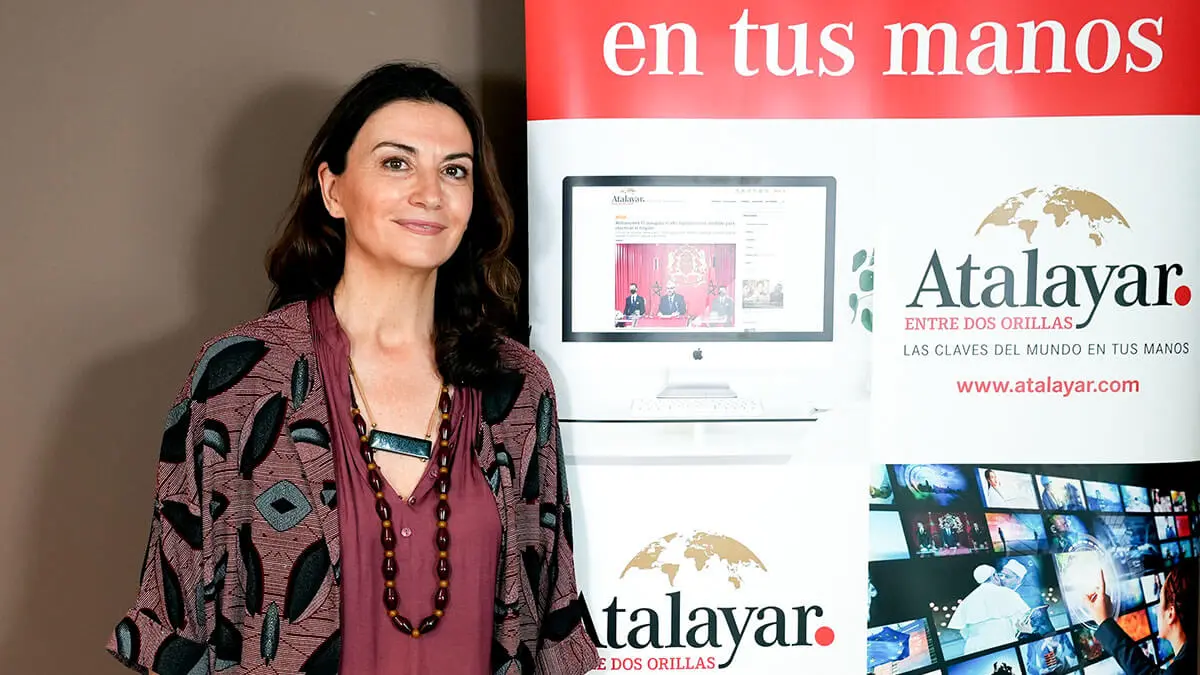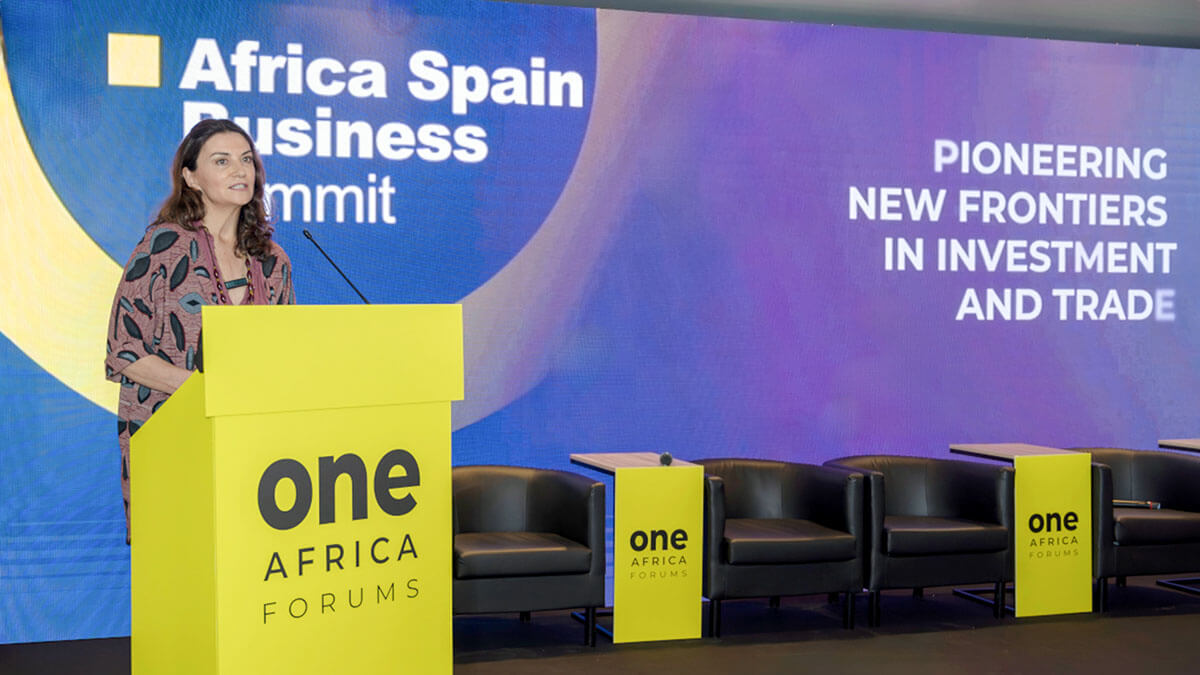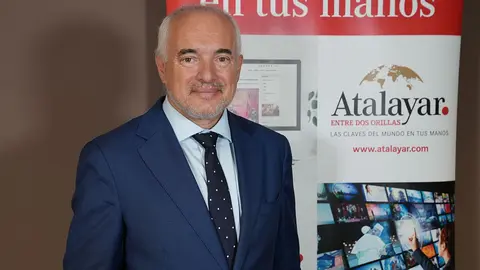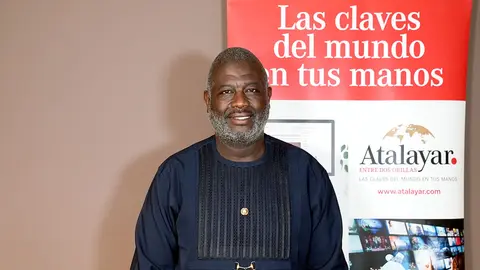Teresa Guardans: "Responsible financial investment can improve the lives of people living on the African continent"

Barcelona hosted the Africa Spain Business Summit to analyse the economic and commercial links between Africa and Europe, more specifically Spain.
Oryx Impact, a firm dedicated to investing capital in the African continent to create jobs and generate economic development, took centre stage at the opening of the forum. Its founder, Teresa Guardans, gave a presentation on how to mitigate the risks of investing in Africa.
What role should forums like this play and what are your expectations for you and your organisation?
I think it is interesting to hold forums like this, especially from the point of view of making the African reality known, because we do not know the opportunities for investing responsibly and consciously in Africa.
We talk a lot about the challenges, we talk a lot about the difficulties, but it is also very important to make known the positive realities that the continent has, and I think it is important to hear it from them. Therefore, I think it is very important to hold forums like this one.
If there is one thing that characterises Africa, it is its enormous diversity: 54 different countries, the largest free trade area in the world, infinite possibilities for the future. As Oryx Impact points out, why Africa? What does this continent offer Spanish investors and entrepreneurs?
We are impact investors: we seek financial profitability, but also social and environmental profitability.
Africa is the continent where you should invest in impact, in the sense that, through responsible financial investment, you can improve the lives of the people who live on the continent, change them and give them a better chance in this world.
There are many opportunities in Africa, not only in the microfinance or fintech sectors, but also in education, health, energy access, financial inclusion and the whole issue of technology, how it is changing society. And doing it from our point of view, with a gender focus, is very important.
We invest with three impact themes, which are: creation of stable employment, mitigation and, above all, adaptation to climate change with resilience and adaptation solutions, and gender equality, more opportunities for women and girls on the continent.
Your company promotes impact investments, as you have just told us, that provide financial, environmental and social benefits based on public-private partnerships. What sectors do you see as the most promising in Africa and the most interesting for European investors?
We see great opportunities and a lot of need in the field of renewable energy, access to energy, education, health, everything that involves technologies, financial inclusion, mobility issues....
There are really a lot of opportunities and we also want to see that Africa is very diverse in terms of the 54 countries I mentioned, but also in terms of the opportunities that are offered on the continent.

Can you tell us about one of the actions you are doing to serve as an example?
Yes, what we do is that we don't invest directly, we promote a fund of funds, that is, what we do is invest with funds that have a local presence on the African continent.
For us it is very important to obtain that financial return, but also to develop that impact investment ecosystem on the continent, to contribute to that development.
And how do you do that?
We do that by empowering the impact managers that are present on the African continent, connecting them with each other.
To date, we have discussed and analysed more than 300 private equity funds with impact intent on the African continent. We have all the information digitised.
For example, if someone is working on a health sector solution in Kenya and we see another fund investing in something similar in Nigeria, we put them in touch, because it is very important to be able to scale those solutions across borders, to be able to help more intra-regional cooperation and thus grow businesses.
We do our impact fund, but we also have an important technical assistance fund to help managers measure against ESG and impact criteria. It is complicated, because there are no clear standards, but we believe it is important to do this so that they fully integrate it into their decision-making processes and, at the same time, attract more private capital, which is much needed on the continent, towards impact investments.
Looking to the future, what obstacles need to be removed for European investors and entrepreneurs to see Africa for what it is: a huge market with endless possibilities for development?
There is a need to show success stories, a change of narrative also about what is being told about Africa, and it is also important to make a diversified investment from our point of view, because there are risks everywhere.
What we have to try to achieve is an investment that has a positive net effect, and every investment has an effect and an impact, but for us the important thing is to diversify and reduce the risk also through the Technical Assistance Fund, public-private collaboration, with combined financing, also with guarantees, for that investor who has not yet invested in Africa and is afraid to enter, to see and then choose in which field he would like to specialise more.
Above all, because we must be convinced that stability and progress in Africa is stability and progress in Europe.
Absolutely, and we fully defend migration and we have all lived in different places, but it has been our own choice, it has not been in a disorderly or desperate way.
Nobody wants to leave their country of origin in search of who knows what. We believe that it is very important to create opportunities in the countries of origin so that people can decide freely and in a dignified way where they prefer to live. And if you have an interesting opportunity to live in dignity in your country of origin, then surely you will not try to cross the Mediterranean at the risk of everything you have.











